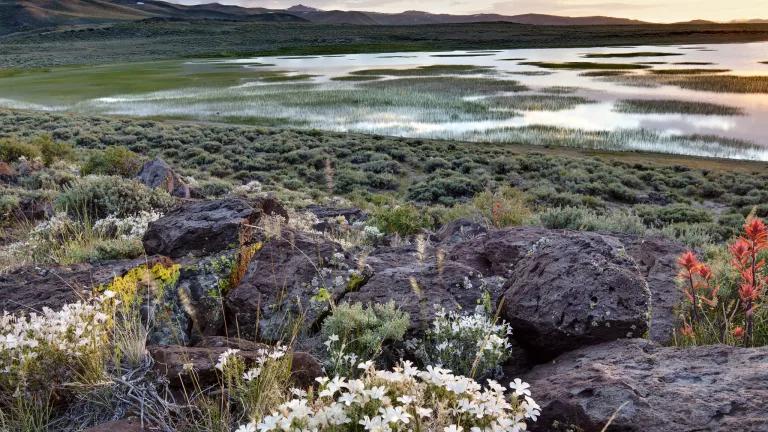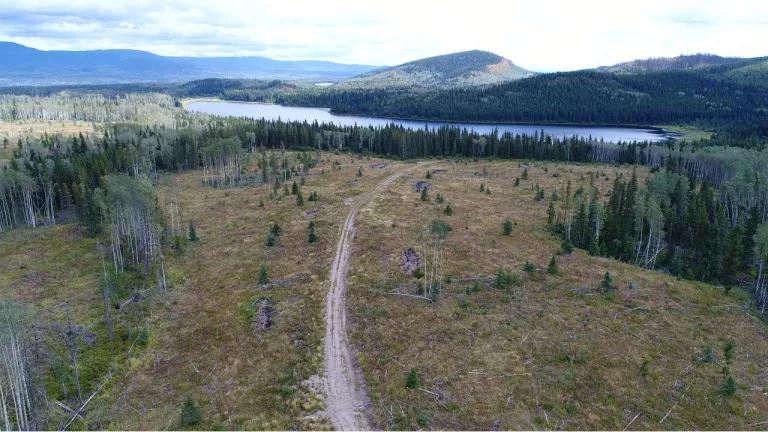Pebble Mine: Canadian Owner on Defense as Opposition Grows

Faced with growing diversity of national opposition, CEO of embattled mining scheme proposed for Bristol Bay headwaters claims Army Corps review settles “without any doubt whatsoever” continuing concerns about risk to world’s greatest wild salmon fishery.
The Pebble Limited Partnership, wholly-owned subsidiary of Northern Dynasty Minerals—the small, under-funded Canadian owner of the widely condemned Pebble Mine—has been seriously on the defensive this past week as its project gets hit from all sides.
In fact, for over a decade, playing defense has been a consistent reality for the massive open pit copper and gold mine proposed for construction in the wild salmon-rich headwaters of Bristol Bay, as all major mining company partners have walked away, the U.S. EPA has predicted potentially “catastrophic” consequences in the event of a containment failure, and even the Trump administration has wavered in its support.
And, most important, the people of the region continue unrelentingly to oppose the project.
This past week Pebble’s public relations operation has gone into overdrive hoping to prevent the project’s implosion in the face of widely reported statements of opposition from across the political spectrum. While largely reiterating their usual talking points, Pebble CEO Tom Collier has delivered several with increased intensity this week, inviting brief response:
First, citing the Army Corps’ recently released final environmental impact statement for Pebble’s permit application as having established that it “will fully co-exist” with the invaluable fishery and its ecosystem, he states categorically that “there can be no federal action at Pebble that is inconsistent with the final EIS, period.”
In fact, section 404(c) of the federal Clean Water Act entitles EPA to “prohibit or restrict” a project or activity based on the standards set forth in that section. Although infrequently used, this authority was enacted by Congress 50 years ago precisely to determine federal policy with respect to destructive projects like the Pebble Mine. Indeed, the Tribes of Bristol Bay have themselves requested that this authority be invoked to protect their fisheries, their communities, and their way of life from a reckless scheme that has become perhaps the most widely-condemned mining project anywhere today.
Second, he dismisses as “laughable” the suggestion that the Bristol Bay Watershed Assessment --prepared following the Tribes' request-- is a more credible basis for federal decision-making.
In fact, the Bristol Bay Watershed Assessment was the result of a multi-year, publicly transparent, scientifically rigorous and twice-peer reviewed assessment process that documented the impacts of large-scale mining in the region. By contrast, the Army Corps’ final EIS—which does not constitute a permit decision on the project—is the result of a rushed Army Corps permit review and has been widely criticized at every stage of the permit process by a broad consensus of stakeholders, from federal agencies to independent scientists to Bristol Bay residents.
Third, he asserts once again his self-interested but entirely unsupported opinion that a green energy future depends on the development of the Pebble project in the headwaters of the world’s most productive wild salmon fishery. In effect, he argues on that basis that Northern Dynasty’s sole asset—the Pebble Mine—is a critical element in the battle against global climate change.
If he’s right in this assertion—and considering Northern Dynasty’s record of consistent failure over the past 15 years—we might fairly conclude that humanity is doomed. The Pebble Mine is a disaster waiting to happen, the Pebble Partnership has disintegrated, and Northern Dynasty is in a desperate search for new investment, new funding, and, ideally, a new project owner.
And still Tom Collier wants us to believe the Pebble Mine is essential to solving the climate crisis??
The good news is that there are other places to find and recover copper and other ways to fuel our green energy future. Although Tom Collier fails to mention it, each of the major mining partners that abandoned the Pebble project did so because of their considered judgment that there are better options elsewhere to produce copper—preferable to and more profitable than the Bristol Bay watershed, at the headwaters of one of the world’s great natural ecosystems, relentlessly opposed by the people who live there.
In 2010 Mitsubishi Company sold its interest in the Pebble Mine. In 2013 Anglo American walked away from its investment of an estimated $600 million. In 2018 First Quantum Minerals wrote off its $37.5 million investment just six months after having made it.
Perhaps most unusual was Rio Tinto’s departure in 2014, after several years of discussion with Alaskan Native leaders and NRDC, when it decided to donate all of its shares in Northern Dynasty to two Alaskan non-profits, the Alaska Community Foundation and the Bristol Bay Native Corporation Education Foundation. In doing so, Rio Tinto’s current CEO Jean-Sebastien Jacques—then Rio’s Head of Copper—devised a creative and culturally-responsive exit strategy that, in the words of Alaska Senator Lisa Murkowski, “committed to investment in the education of Bristol Bay’s next generation.” Both agencies promptly sold the shares to create multi-million dollar endowments to support scholarships and vocational job training for Alaskans.
While Rio Tinto listened and responded with sensitivity to social and environmental concerns, Pebble's Tom Collier has continued to ignore the interests and input of the region's communities and, more broadly, the strong majority of opposition among Alaskans state-wide, just last month polling at 62 percent against the project. As he closes in on a personal bonus of $12.5 million tied in his contract to a schedule of accelerated project permitting, Collier’s history of outlandish assurances has earned him the caveat that, when Tom Collier speaks, “it’s sensible to be skeptical.”
This week his comments have proven much the same. Tom Collier is no one to trust with the future of Bristol Bay.




